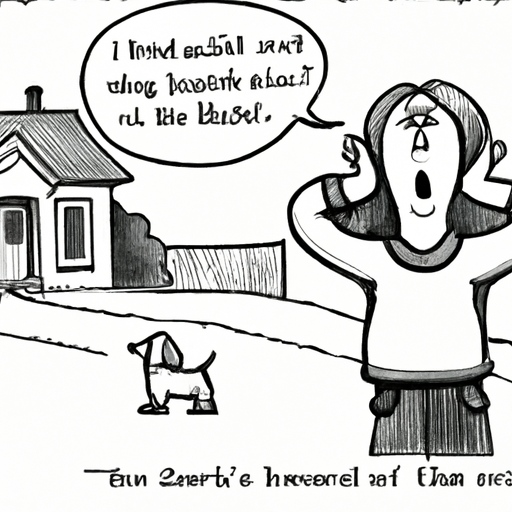Barking is a natural part of your dog’s behavior, but when it becomes excessive, it can be a source of irritation for you and your neighbors. In this guide, we’ll explore practical steps you can take to help your dog bark less.
Understand Why Your Dog is Barking
Before you can effectively stop your dog from barking, it’s important to understand why they’re doing it. Dogs bark for a variety of reasons:
- Warning/Alert: This can be a response to perceived threats.
- Attention-seeking: Some dogs bark to get your attention or to initiate play.
- Anxiety: Dogs often bark when they’re anxious or bored.
- Response to other dogs: This is also known as responsive barking.
Identify the Cause of the Barking
Identifying the cause of your dog’s barking is the first step towards addressing it. Pay attention to when, where, and why your dog is barking. Keep a simple log of barking incidents, noting down:
- The time and place of the barking
- What your dog was doing before they started barking
- Any potential triggers for the barking
Remove or Address the Trigger
Once you’ve identified the trigger, the next step is to remove or address it. Here are some strategies:
- Distraction: Distract your dog with a toy or game when they start barking.
- Environmental modification: Change your dog’s environment to remove the trigger. This could be as simple as closing the curtains so your dog can’t see people passing by.
- Training: Teach your dog commands like “quiet” or “enough”. Reward them when they obey.
Use Positive Reinforcement
Positive reinforcement is a powerful tool for changing your dog’s behavior. This involves rewarding your dog when they stop barking. Rewards can be treats, toys, or simply your attention. The key is to make the reward more attractive than the urge to bark.
Consult With a Professional
If you’re struggling to manage your dog’s barking, it may be worth consulting with a professional. A dog trainer or behaviorist can provide tailored advice and training plans for your dog.
Consider Medical Causes
In some cases, excessive barking may be due to a medical issue. If your dog’s barking is accompanied by other signs of distress, such as excessive licking or pacing, consult with a vet.
Provide Physical and Mental Stimulation
Boredom and anxiety can often lead to excessive barking. Ensuring your dog gets enough physical exercise and mental stimulation can help reduce barking.
Frequently Asked Questions
How long does it take to train a dog to stop barking?
The time it takes can vary greatly depending on the dog and the cause of the barking. Consistency is key, and with daily training, you should start to see improvements within a few weeks.
Can I use a bark collar to stop my dog from barking?
While bark collars can be effective, they should be used as a last resort and under the guidance of a professional. They can potentially cause distress to your dog and do not address the underlying cause of the barking.
My dog barks at everything. What can I do?
If your dog barks at everything, they may be overly sensitive or anxious. Providing a safe, quiet space for your dog and keeping a consistent routine can help. Consultation with a professional can also provide further guidance.
What should I avoid doing when trying to stop my dog from barking?
Avoid yelling at your dog to stop barking. This can actually reinforce the barking, as your dog may think you’re barking along with them. Also, avoid punishing your dog for barking, as this can lead to anxiety and potentially more barking.
Remember, patience and consistency are key when training your dog to bark less. With the right approach, you can help your dog become a quieter, happier member of your family.



